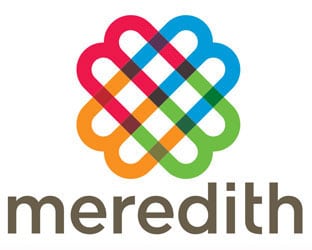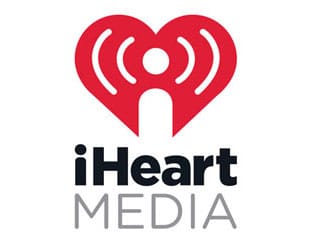An additional 24 hours of negotiations couldn’t prevent what DISH Network was forced to do, by law, at 7pm Eastern on Tuesday.
With the flick of a switch, local TV stations owned by Meredith Corp. in 12 DMAs including Phoenix, Nashville and Atlanta were blocked by DISH.
The reason? A new retransmission fee agreement couldn’t be reached.
Already, the blame game is in full tilt, with Meredith issuing a statement immediately after 7pm ET Tuesday that points fingers at DISH. “By law, cable and satellite companies must negotiate in good faith with television stations before dropping the TV stations’ signals,” Meredith says. “DISH failed to reach an agreement.”
Patrick McCreery, President of Meredith Local Media Group, also reiterated comments made ahead of a 24-hour extension agreed upon by Meredith and DISH on Monday, noting that Meredith “has been trying for months to get DISH Network to negotiate seriously.”
DISH says it is Des Moines-based Meredith that’s the bad actor preventing local viewers from receiving its channels on the direct broadcast satellite’s services.
“Meredith is blocking consumers in an effort to gain negotiating leverage as it demands higher monthly rates for its local channels,” DISH says. “Meredith is also asking DISH to pay for subscribers who choose to receive their local channels for free over the air.”
The latter statement is intriguing, as it suggests individuals have a DISH package exclusively bringing cable channels — and not over-the-air TV — to their homes.
As such, RBR+TVBR contacted DISH customer service. Upon being transferred three times after speaking with an initial customer service agent, as one attempt went to broadband services and a second attempt went to a Spanish-speaking agent, a Denver-based customer service specialist explained that customers have the option of removing all local channels from its “America’s Top 120” package, lowering the monthly pre-tax rate from $59.99 per month to $47.99.
In a statement provided by DISH to RBR+TVBR on Monday, the DBS provider said, “Even as more DISH customers turn to digital antennas for free access to their local channels, we recognize that many continue to rely on their pay-TV package to get these stations … only Meredith Corporation can choose to take their content away from DISH customers.”
DISH then went on to attack Meredith for deciding to involve customers in the contract negotiation process at a point when there was still time for the two parties to reach a mutually beneficial deal. It then turned to the FCC’s definition of retransmission consent, with DISH’s interpretation clearing it of any culpability.
“FCC language on this subject clearly states the broadcaster controls consent for its channels, and thus it is the broadcaster that controls if customers get blacked out,” DISH asserts.
Meanwhile, higher monthly rates are one of the biggest conundrums facing the broadcast TV industry, with AT&T-owned DirecTV and U-Verse presently battling Nexstar Media Group over a new retransmission fee agreement of its own; this has led Members of Congress to step in to the fray, demanding that a new deal be reached.
It’s not that simple. While the broadcast TV industry has assailed MVPDs and DBS providers for being unreasonable and for their “blackout” of over-the-air local channels, companies such as Nexstar have grown increasingly reliant on retransmission fees to keep quarterly profits healthy in an era when waning advertising revenue could cripple the industry. And, with costs associated with the voluntary roll-out of the next-generation broadcast TV standard yet to come, protecting the profits is likely Job One for many TV industry C-Suiters.
At Meredith, the company’s fiscal Q3 “accomplishments” included increasing revenue from consumer-related sources by 28%. “This was driven by strong newsstaand and affinity marketing performance in Meredith’s National Media Group, along with favorable renewal of retransmission consent agreements in Meredith’s Local Media Group,” the company said.
In fact, Meredith Local Media “consumer related” revenue climbed to $84.7 million, from $70.9 million, in its fiscal Q3. By comparison, non-political spot revenue came in at $79.9 million, rising from $75.4 million.
It marked the first quarter where retransmission fee revenue was stronger than spot sales across Meredith’s 17 TV stations.
The following stations are currently being blocked by DISH Network to its subscribers:
- Atlanta: CBS affiliate WGCL-46
- Phoenix: CBS affiliate KPHO-5 and “AZ Family” news-intensive KTVK-3
- St. Louis: CBS affiliate KMOV-4
- Portland: FOX affiliate KPTV-12 and MyNetworkTV affiliate KPDX-TV
- Nashville NBC affiliate WSMV-4
- Kansas City: CBS affiliate KCTV-TV and non-affiliated KSMO-TV
- Hartford-New Haven: CBS affiliate WFSB-3
- Greenville-Spartanburg: FOX affiliate WHNS-TV
- Las Vegas: FOX affiliate KVVU-5
- Mobile-Pensacola: FOX affiliate WALA-TV
- Flint-Saginaw, Mich.: CBS affiliate WNEM-TV
- Springfield-Holyoke, Mass.: CBS affiliate WSHM-TV, FOX affiliate WGGB-DT and ABC affiliate WGGB-TV
With DirecTV and Nexstar tangling and DISH now fighting Meredith Corp., consumers are steamed, even taking to RBR+TVBR to express their frustration via comments posted to the RBR.com website.
Kim Howell, a Tennessee resident, wrote on Wednesday, “I believe networks free with antennas should not charge customers in rural areas such as Tennessee when we have no choice but satellite. I wish my local NBC channel and others had never sold out to Meredith. Your company along with satellite companies are screwing over rural areas that have no option but satellite TV. We cannot access antennas, cable, or internet! Thanks for the black out. My NBC channel WSMV is all I watch news and prime-time on! You suck!”
Howell is likely not the only consumer perhaps a bit confused as to how retransmission fee agreements are reached.
In RBR+TVBR‘s call to a DISH product specialist, questions were asked regarding the availability at its Dayton, Ohio administrative headquarters of WDTN-2, the local NBC affiliate.
WDTN is a Nexstar-owned station and is presently being prevented from reaching DirecTV subscribers, not DISH subscribers. The DISH specialist explained that all local channels were being offered, explaining that it was DirecTV that was blocking the channel — and that the AT&T-owned service has a poor record of doing this in other cities across the U.S.
The representative’s answer, had RBR+TVBR stated it wants service in Portland, Ore., would like had been different.
As of 10:51am ET Wednesday, Meredith Corp. shares were of 2.1%, to $53.42, on news of the DISH “blackout” in absence of a new retransmission fee agreement. DISH was down 0.9%, to $40.85.





